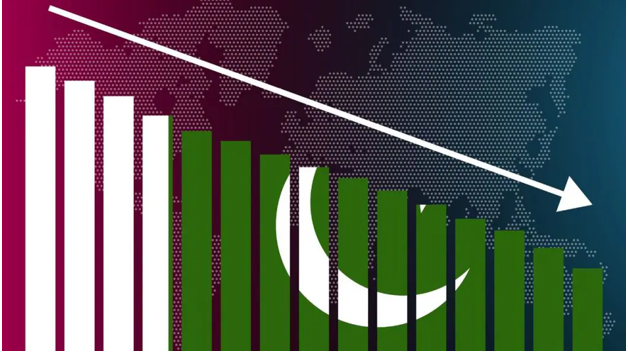INP-WealthPk
Moaaz Manzoor
Pakistan’s sharp decline in sovereign default risk may bolster short-term investor confidence. However, structural deficiencies and fiscal constraints continue to undermine prospects for long-term foreign investment, reports WealthPK.

Pakistan’s recent achievement in leading emerging markets (EMs) in reducing sovereign default risk has drawn measured optimism from economic experts, who believe the trend may lift investor sentiment in the short-run but caution that long-term foreign investment hinges on deeper reforms.
According to Bloomberg Intelligence, Pakistan’s credit default swap (CDS) CDS-implied default probability declined from 59% to 47%, marking a 1,100-basis-point drop — the sharpest among major emerging market economies. This improvement, spurred by macroeconomic stabilisation and strong engagement with the IMF, signals a shift in risk perception following last year’s near-default crisis. The government’s commitment to timely debt repayments, improved credit ratings by S&P and Fitch, and allied support from China, Saudi Arabia, and the UAE contributed to this turnaround.
Speaking to WealthPK, Ali Najib, Deputy Head of Trading at Arif Habib Limited, said the reduction in sovereign risk has enhanced investor confidence. He noted, “Investor confidence got further strengthened with Bloomberg reporting that Pakistan led global EMs in default risk reduction, with probability falling from 59% to 47% — the sharpest drop worldwide.” He added that corporate strength is also emerging: “The number of billion-dollar listed firms in Pakistan rose from six in Dec 2023 to 11 by June 30, 2025.”
Najib emphasised that China’s recent $3.4 billion loan support — comprising $2.1 billion in rollover and $1.3 billion refinancing — played a vital role in helping Pakistan achieve the IMF’s foreign exchange reserve target of $14 billion by June 30, 2025. “This will boost reserves, stabilise currency, strengthen IMF confidence, and support the economy,” he asserted. He projected continued upward potential for the Pakistan Stock Exchange, backed by macroeconomic improvements, a stable exchange rate, and growing foreign inflows.
However, Tuaha Adil, Senior Research Economist at PRIME Institute, cautioned that current optimism should be interpreted in context. “The recent developments, such as record-breaking performance of the PSX, declining sovereign risk, and a credit boom, may indicate short-term market optimism, but they do not necessarily signal a sustainable economic rebound,” he said.
According to Adil, these improvements are largely driven by short-term IMF-mandated corrective measures under the Extended Fund Facility, such as fiscal tightening, rationalisation of subsidies, and enforcing a market-based exchange rate. While helpful in stabilising the economy temporarily, “these measures alone cannot ensure long-term sustainability or inclusive economic growth.”
Adil warned that deeper structural challenges remain unresolved. “Export performance remains stagnant due to a narrow export base, an underperforming manufacturing sector, and burdensome trade regulations.” He also pointed to conditional credit outlook upgrades and reliance on non-liquid foreign reserves that limit external payment capacity. Moreover, Adil noted, “Investor confidence remains low” due to regulatory inconsistency, taxation issues, profit repatriation barriers, and political uncertainty.
While the reduction in sovereign risk is a welcome development that may uplift investor confidence in the short term, experts believe that meaningful, long-term foreign investment will remain elusive without deep and sustained structural reforms across key sectors of the economy.
Credit: INP-WealthPk













